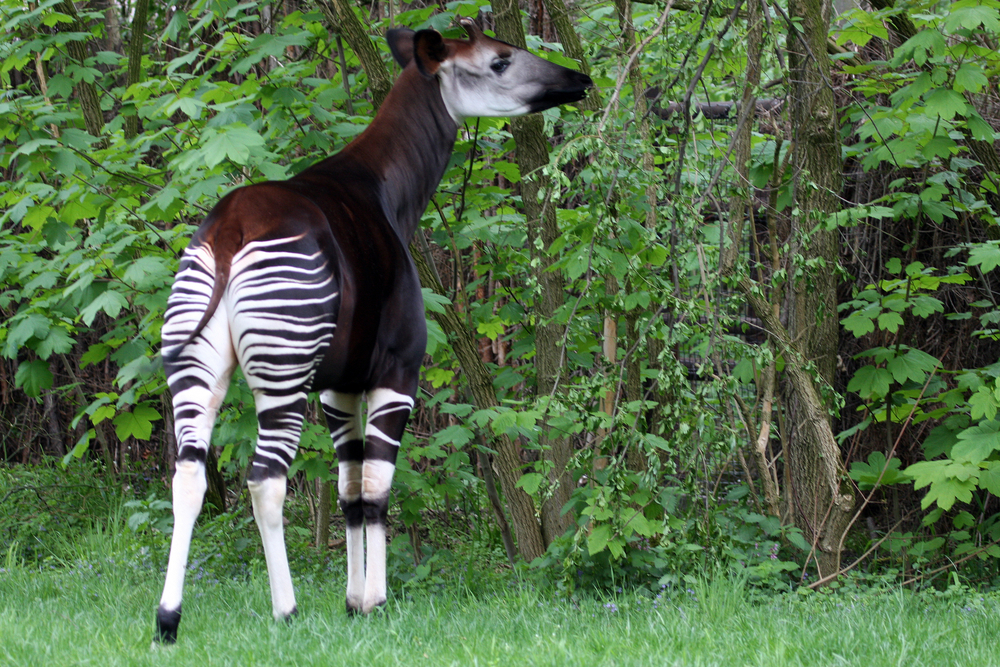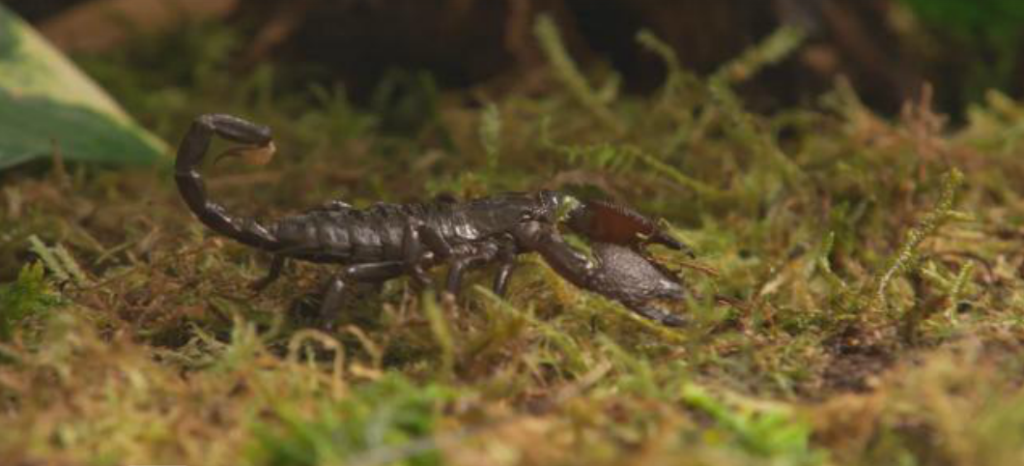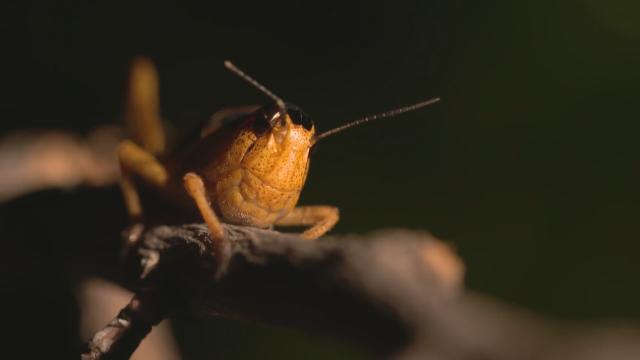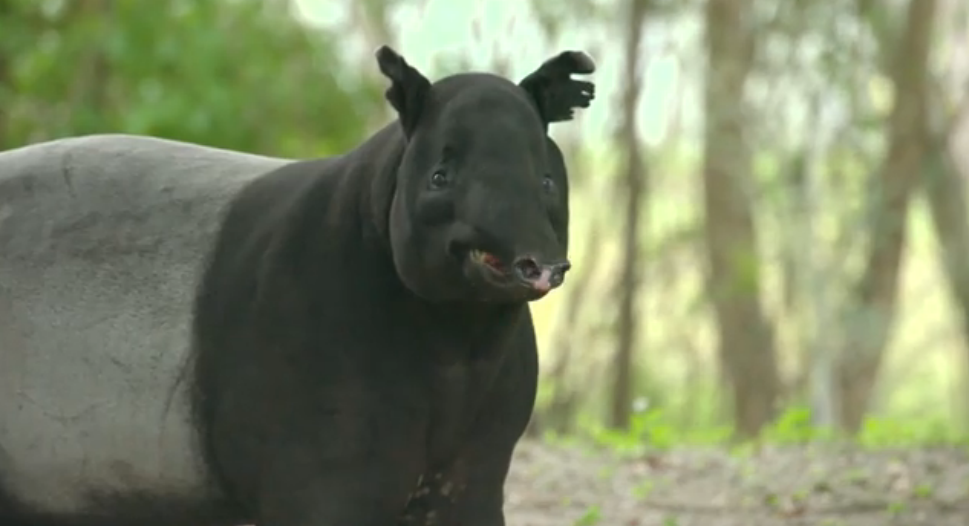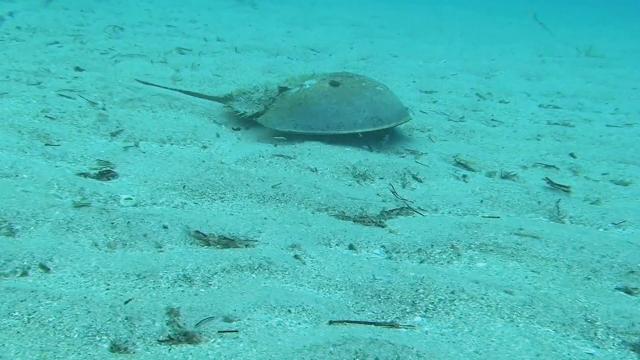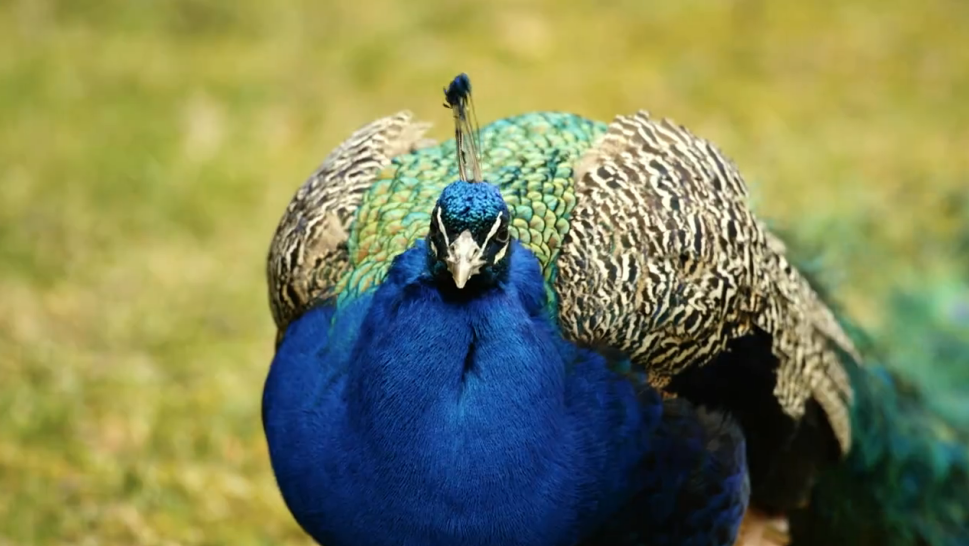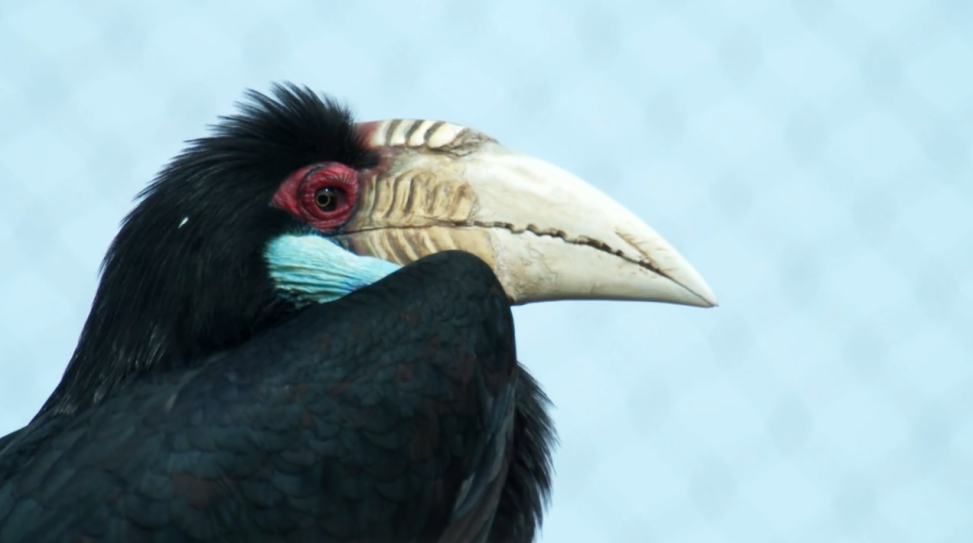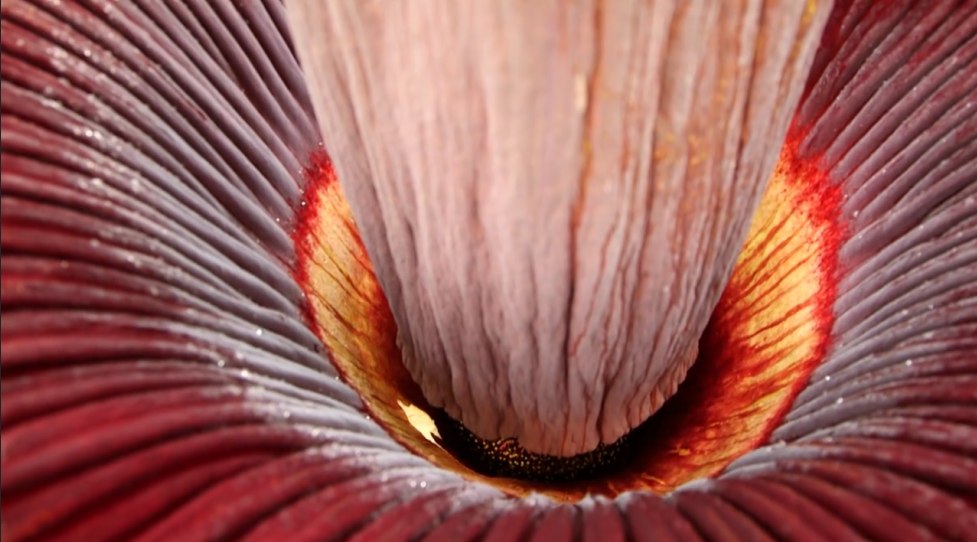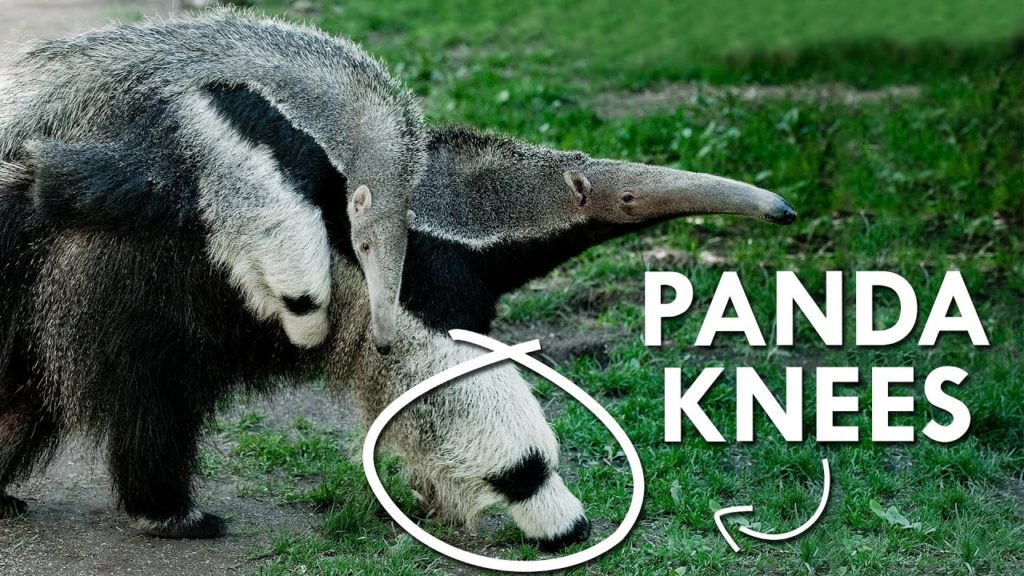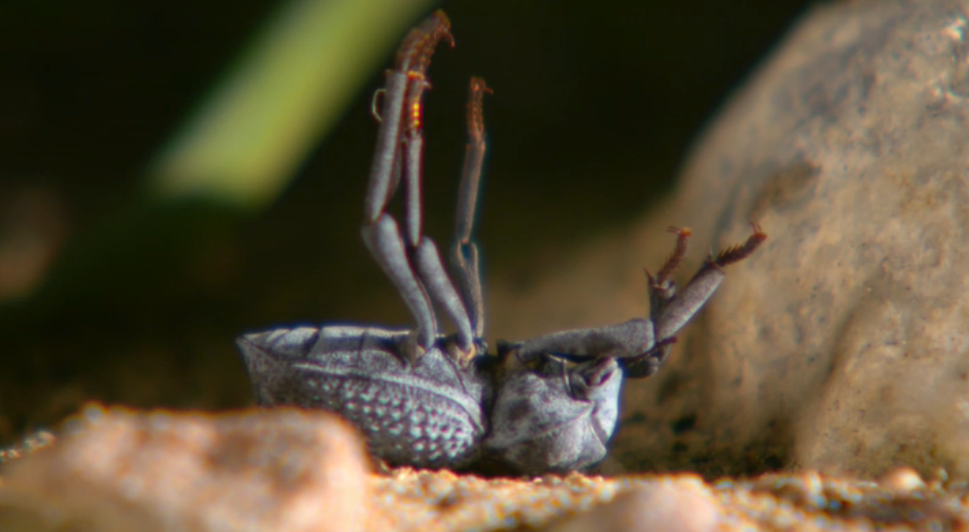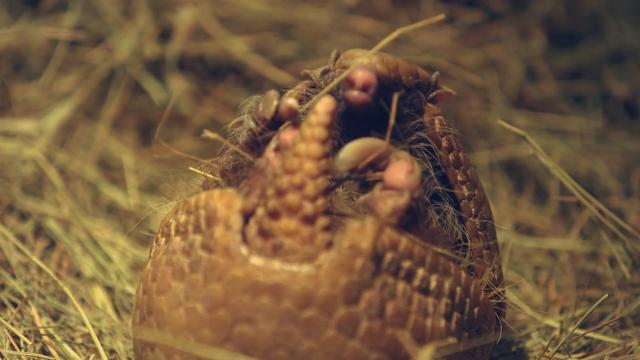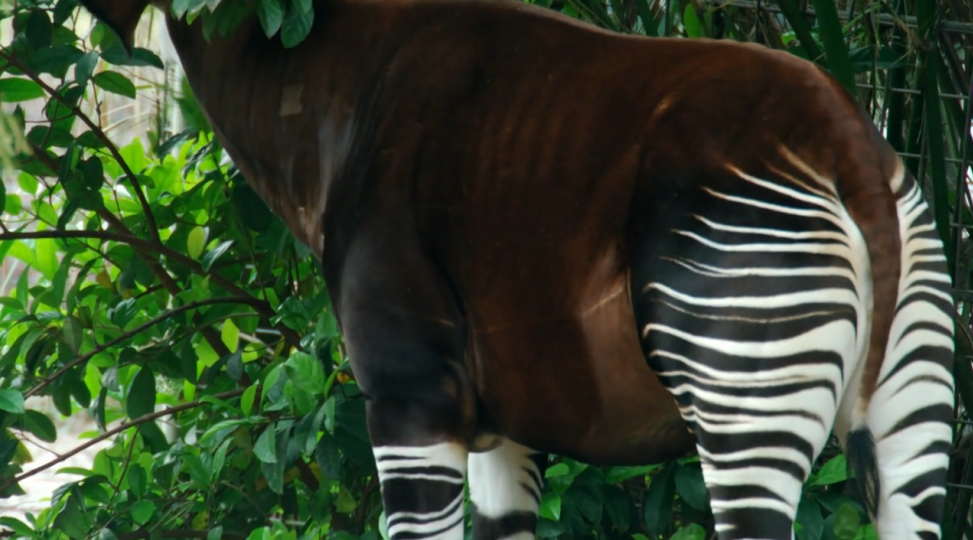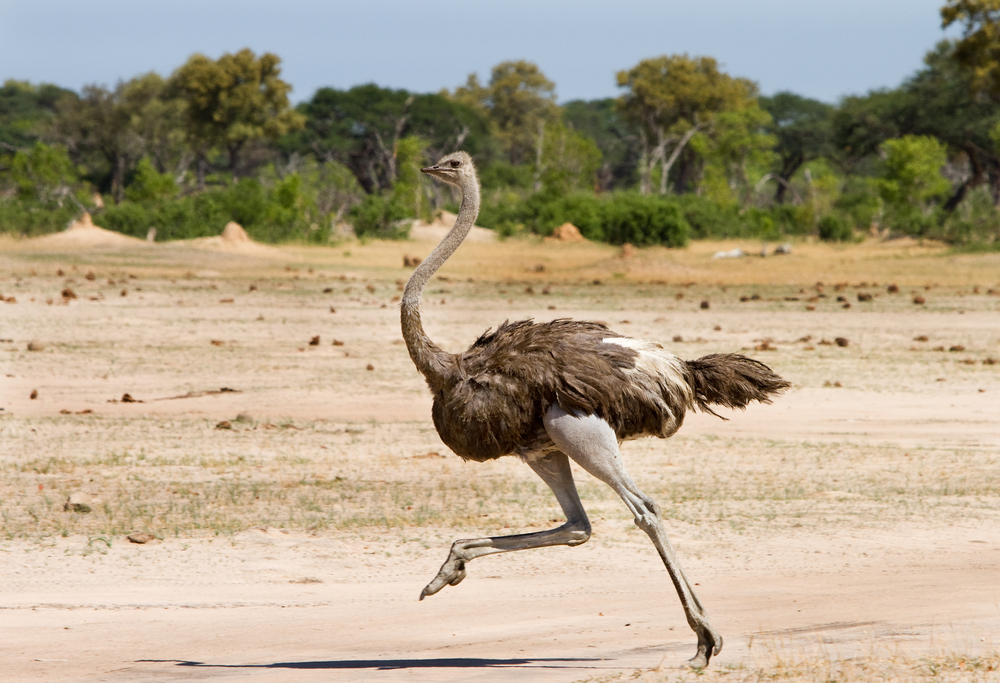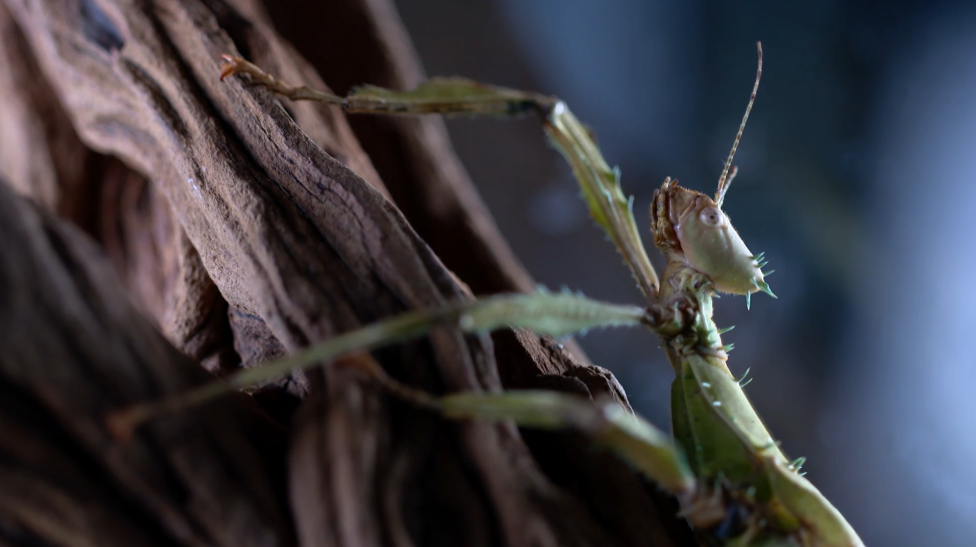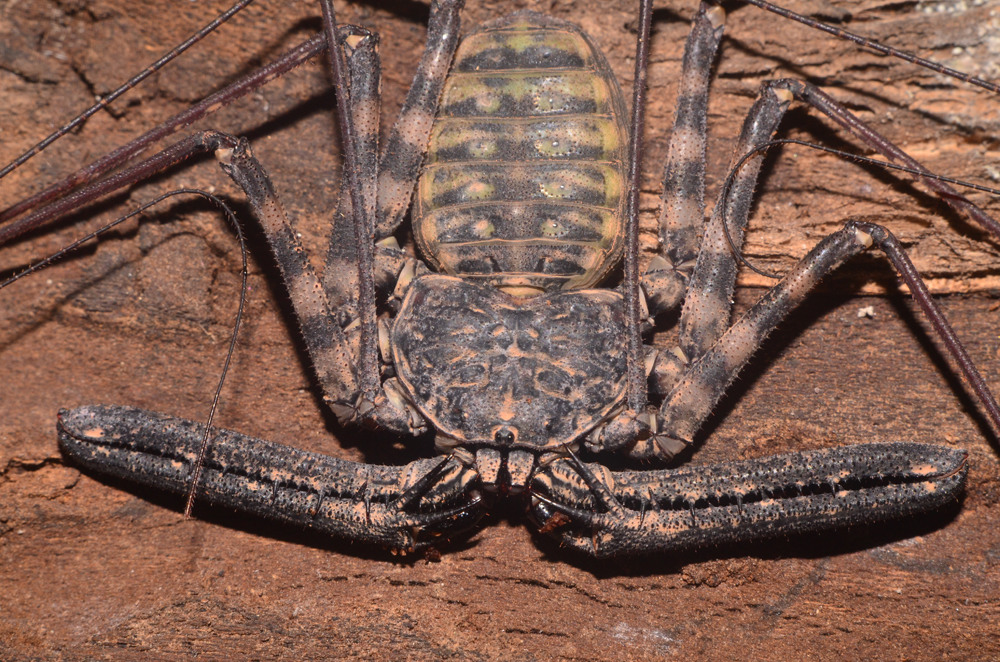Will this zebra-sock-wearing giraffe survive the pushmi-pullyu politics of Central Africa long enough to reveal its secrets?
Like a character dreamt up for a Dr Doolittle spin-off film by an over-caffeinated CGI artist, the okapi resembles the result of a drunken night of ill-advised passion between a zebra and a giraffe. Yet this idiosyncratic animal’s predicament is anything but amusing. The rare and intriguing mammal from the deepest darkest forests of the … Continued
Emperor scorpions have a really cool trick they can only do at night
From their stingers to their claws, emperor scorpions have earned a terrifying reputation. But when the sun goes down and the moon and stars are out, these arachnids show their true colors.
Plagues of locusts are very real and very destructive
What sounds like a curse from a mythological tale actually has a very real basis. Plagues of locusts will descend on crops and leave behind a trail of destruction in their path.
Everything about the Malayan tapir is adorably silly
From how it runs to the noises it makes, the Malayan tapir is a very silly animal – but this just makes us love it all the more.
These creatures are 450 million years old
The horseshoe crab, which is neither a crab nor a horseshoe, is old. How old? Older than the dinosaurs. In fact, these critters first appeared on our planet about 450 million years ago.
There's no such thing as a female peacock
You might be tempted to refer to both males and females as peacocks, but you’d be wrong. In fact, only males are called peacocks, while females are called peahens and the generic term for both is peafowl. More for Bird Week on Love Nature Why colourful bird feathers never fade Are these the most valuable … Continued
Ten percent of a hornbill's body weight is in its beak
Hornbills have earned their name from their comically large beaks. The beaks are so heavy, that the bird’s first and second vertebrae are fused together to help them carry the weight. More from Bird Week on Love Nature: Baby black storks growing up Africa’s vultures are circling towards extinction, a new study warns Baby hummingbirds … Continued
The world's tallest flower is also the stinkiest
Taking around 10 years to blossom, the corpse flower has earned a very stinky reputation. The stench helps attract insects, who will carry and spread the plant’s pollen.
Giant Anteaters have Panda Knees
Anteaters can have two foot long tongues that allow them to pick up over 30,000 ants everyday. Move over Yellow Jacket, there’s a new super villain in town.
This beetle is known for playing dead
As its name suggests, the blue death feigning beetle is well known for playing dead when threatened.
This is how armadillos are able to roll into balls
As a defense mechanism, armadillos are equipped with one very unique and useful trick: They can roll up into a ball. But have you ever wondered how they’re able to do it?
This creature has the body of a horse, legs of a zebra and the head of a giraffe
The okapi, which looks like a mash-up of a horse, a zebra and a giraffe, is quite a hard creature to find in the wild. In fact, they used to be called the African unicorn because they were so rare.
Ostriches don't need their wings to fly . . . they need them to dance
Are you curious as to why a flightless bird would need wings in the first place? It all comes down to an important mating ritual: the ostrich dance.
These insects survive by mimicking twigs
There are over 3000 different species of stickbug, and each one is built to blend in with its local flora.
An insect so strange even its name is weird
Some people call this creature a whip spider, while others call it a whip scorpion. In fact it is neither a scorpion nor a spider, and while it does have an unusual name, that’s not the weirdest thing about this bug.

